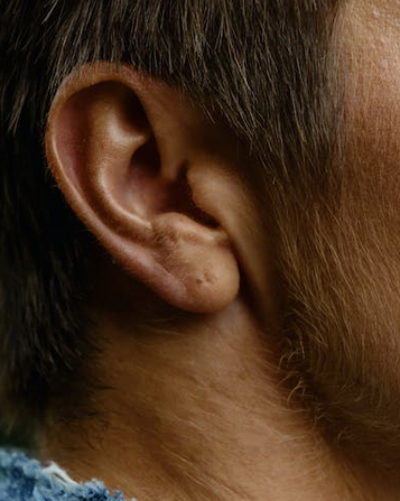Tinnitus, another name for ringing in the ears, is the perception of hearing a sound when there is none outside. A ringing, buzzing, humming, or other sound may be heard in one or both ears, as well as in the head, by those who have tinnitus. Tinnitus can be a sign of underlying conditions such ear injuries, severe noise exposure, or circulatory system disorders, but it can also develop on its own. Tinnitus can be transitory or persistent, and its severity can range from mild to incapacitating.
Different people may describe tinnitus differently, and it can take many different forms. While some describe it as buzzing, humming, or whistling, some people describe it as a ringing sound. The sound can be heard in one or both ears, in the head, and can fluctuate in loudness and pitch. The underlying cause of the disease, as well as other elements including a person’s age, general health, and unique auditory system, may have an impact on the precise characteristics of the tinnitus.
Tinnitus can be an extremely annoying and upsetting ailment that has a variety of negative effects on a person’s quality of life. Tinnitus can disrupt sleep and make it difficult for some people to focus or hear outside noises. Due to how annoying and irritating the persistent presence of the sound can be, tinnitus can also be linked to anxiety and depression.
Especially in busy surroundings, hearing loss can make it difficult to hear and interpret speech. This can be annoying and have an impact on how someone communicates and interacts with others. A head injury, a circulatory system issue, or an ear infection are a few examples of underlying conditions that can influence the auditory system and cause tinnitus as a symptom. In these situations, tinnitus may also be accompanied by other symptoms including vertigo, dizziness, or balance issues.
The persistent sound may be interpreted by the brain as an important or potentially harmful warning, which can increase stress and anxiety. The word “tinnitus,” which means “to ring” in Latin.
More information:
- The National Institute on Deafness and Other Communication Disorders (NIDCD), a division of the National Institutes of Health (NIH), is a reliable source of information on tinnitus and other hearing-related conditions. You can find more information about tinnitus on their website at: https://www.nidcd.nih.gov/health/tinnitus
- The American Tinnitus Association (ATA) is a non-profit organization that provides information and support for people with tinnitus. You can find more information about tinnitus on their website at: https://www.ata.org/
- The Mayo Clinic is a trusted healthcare organization that provides a wide range of information on health and medical topics. You can find more information about tinnitus on their website at: https://www.mayoclinic.org/diseases-conditions/tinnitus/symptoms-causes/syc-20350156

